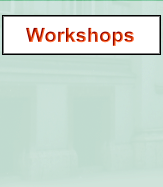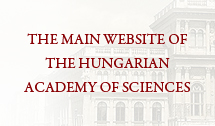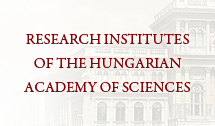

















 |

CV Prof. Mihaly SIMAI.
CURRENT POSITION:
Prof. Simai is a member of the Hungarian Academy of Sciences. Currently he is working in the Institute for World Economics of the Hungarian Academy of Sciences as a Research Professor. He is a Professor of International Economic and Business Studies at the Budapest University of Economics and the director of both the undergraduate and advanced studies program on International Cooperation and International Business. Currently he is responsible for the research programs on globalization, transnational corporation, science and technology and sustainable development. He is the Honorary President of the World Federation of United Nations Associations. President of the Hungarian United Nations Association and of the Hungarian National Committee of UNICEF .
ACADEMIC BACKGROUND:
He graduated in the Budapest University of Economics in 1952. He received his PhD. from the Budapest University of Economics in 1957, became the "candidate of sciences" in 1962, the "doctor of the Academy" in 1971 and in 1981 he has been elected by the Plenum of the Academy to the membership of the Hungarian Academy of Sciences. He was also studying in Geneve and Paris in post- graduate programs.
PROFESSIONAL EXPERIENCES:
Prof. Simai's professional experiences include teaching, research, business consulting and research management. He started his carrier as an assistant professor in 1952 and has been working in the University since that time with interruptions. He has been working in the U. N. Economic Commission for Europe (1959/60) of the U. N. Centre for Development Planning, Projection and Policies. (Research and field work, 1964-68) He has been the the head of the Department of World Economy and became a full professor in 1971 in the Budapest University. He co-founded the Institute for World Economics of the Academy and became its deputy director(1974-87) and Director General. (1987-91. )His teaching and lecturing included the George Washington University, DePauw University, Helsinki University, Delhi School of Economics, Seoul National University, Aoyama Gakuin University(Tokio), the War College of the U. S. Army etc. He has been a resident fellow in the U. S. Institute of Peace in Washington D. C. in 1991-92. He was the Director of the World Institute for Development Economics of the United Nations University in Helsinki for three years, between 1993-1995. He also directed a global research program in UNU on the global employment issues, on the "Reintegration of the Transition Economies in Europe, China and Vietnam to the Global Economy" and on the The Interrelations between the Democratisation Process and the Economic Transformation in Central and Eastern Europe.
In addition to his employment as a staff member of the U. N. Prof. Simai served as a member and officer of different U. N. expert groups and governing bodies. (U. N. Committee on Public Administration 1972/78, Committee of Distinguished Persons of the U. N. Economic Commission for Europe, 1978, Member and Vice Chairman of the UNICEF Executive Board, 1978-82. Member and Vice Chairman of the U. N. Committee on Development Planning, 1986-89. Member and Chairman of the Council of the United Nations University, 1986-92. Currently, he is a member of the Advisory Board of the Staff College of the United Nations 1997-He is a member of the editorial Board of a number of international journals: Transnational (Geneve), Global Governance (New York), International Affairs (London). Development Studies (Geneve). Environment and Resource Economics (Amsterdam).
He has been working as a consultant for the U. N. Center on Transnational Corporations, UNIDO, UNCTAD, UNDP and UNITAR in different years. He lectured and /or/ participated in the framework of some large international corporations training and research programs, which included Hitachi, IBM Japan, Westinghouse etc. Between 1976-82 he had been the President of the World Federation of U. N. Associations.
He is a member of different professional organizations, like the International Studies Association. (past vice-president and member of the governing board) Academic Council for the United Nations System. EADI, Hungarian Economic Association.
PUBLICATIONS.
He published more than 250 scientific articles and 37 books in Hungarian, English, French, Russian, Arabic, Korean and Japanese.
More recent books, which he wrote, edited /containing substantial studies of his in English/ :
The reintegration of the former socialist countries in Europe, China and Vientnam into the global economy. UNU/Wider. Helsinki. 2000.
The Democratic Process and the Market/ed/. UNU Press, Tokio, 1999
International Business Policy. IWE/HAS Budapest, 1996
Global Employment, The Future of Work/ed/ Vol. I. II. ZED Books London. 1995.
The New Global Environment for the Development Process/ed/. UNU Press. Tokio, 1995.
The Future of Global Governance. USIP. Press. Washington DC 1994.
The World Economy of our Age and the New Multilateralism: New Challenges for Hungary. Hungarian Scientific Council for World Economy. Budapest 1991.
Global Power Structure, Technology and World Economy in the Late Twentieth Century. Akademia-Pinter Publishers, Budapest, London, 1990.
Interdependence and Conflict in the World Economy, North Holland, 1986
Foreign Direct Investments and Joint Ventures in Hungary: Experiences and Prospects. Hungarian Scientific Council for World Economy. Budapest, 1990.
Some of his more recent studies, published in English:
The First Ten Years in the Global Market System. Budapest University of Economics, 1999.
Science and Global Governance. The Story of the United Nations University. Free University. Berlin. 1999.
When Will the Transition Phase End? Thunderbird International Business Review. Vol. 41. 1. 1999
Globalization, Global Governance, Regionalization and Fragmentation. New Issues for Social Sciences. In the volume: New Trends in Economic Sciences. Delhi, 1999.
Democracy and the Market. In the volume:The Changing Nature of Democracy. Brookings, 1998.
A Return or a New Beginning. Transnational Corporations in Central and Eastern Europe. In the volume: Transnational Corporations in the World Economy. Macmillan, 1998.
When Will the Visegrad Countries Conclude the Transition Phase. Warsaw School of Economics. 1998.
The Changing State System and the Future of Global Governance. Global Society, London Vol. 11 No. 2 1997. pp 141-163.
On the Hard Road to Reintegration:The transition Economies and the Global Markets. Acta Oeconomica 1997 vol. 48. pp 77-96
A Globalising World in the volume: Cities Fit for People. Ed. Uner Kirdar. United Nations, New York 1997 pp. 50-70
The Globalisation Process and the Universities. Old Problems and New Challenges.
Educatio. 1997 V évf. IV szám 679-686 o. Budapest.
The Agenda of European Politics in the 1990s in the volume
Richard Falk and Tamas Szentes (ed.)"A New Europe in the Changing Global System"
UN University Press, New York, Tokio, 1997 pp 201-221
Multilateral Cooperation and Systemic Changes.
Implications of the breakup of the Soviet bloc for the International Organisations. in the volume Robert Cox(ed) in the volume. The New Realism. Perspectives on Multilateralism and World Order
United Nations University Press, Tokio, New York, 1997. pp. 186-205.
The Future Role of Japan in the U. N. Global Governance, New York 1995
The Global Economy Beyond 2000. Futura, Helsinki, 1994.
Contact:
Office: Institute for World Economics. Budapest 1014, Orszaghaz utca 30
Tel: 361 224 67-62
Fax: 361 224 6761, 224 6775.
E-Mail:
Or
Budapest University of Economic Sciences and
Department of World Economy,
Tel: 361 218 23 13
Budapest 1093 Fővám tér 8
Tel: 361 218 23-13

|


|
 |
